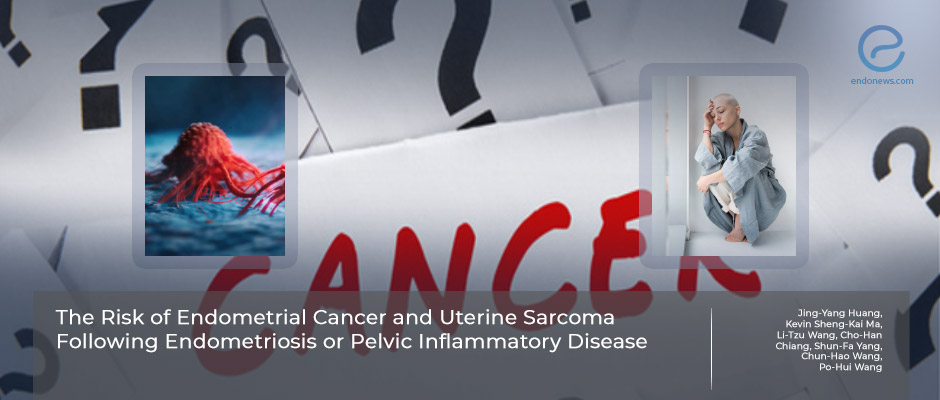Women With Endometriosis Are at a Higher Risk of Uterine Cancer
May 17, 2023
Younger women and those who have had the disease for three to five years are at a particularly high risk.
Key Points
Highlights:
- Women with endometriosis are at a higher risk of developing uterine cancer compared to healthy women or women with the inflammatory pelvic disease.
- Younger women and those who have had endometriosis for 3 to 5 years are at a higher risk of developing uterine cancer.
Importance:
- This study identifies the group of endometriosis patients who should be screened for uterine cancer.
What’s done here:
- This is a population-based cohort study on more than a quarter of a million women.
Key results:
- The risk of uterine cancer is higher in women with endometriosis.
- The risk of uterine cancer is highest among women who have had endometriosis for 3 to 5 years.
- Women with endometriosis ages, 12 to 35 are at the highest risk of uterine cancer.
Limitations:
- The menopausal status of the women was not included as a variable.
- It was not known whether the diagnosis of endometriosis was clinical or surgical.
- The healthy controls were very similar to each other, which could accentuate the difference that were found between the study groups.
Lay Summary
Women with endometriosis are at a greater risk of cancer of the uterus, compared to controls, according to a new study published in the journal Cancers. The study found that women who are younger and who have had endometriosis for three to five years are at the highest risk.
These findings are of great importance because they identify the endometriosis population that should be screened and treated early to prevent cancer.
“We especially recommend that the younger females, who had endometriosis, should actively follow the endometriosis and receive treatment,” the researchers wrote. “ In addition, it is very important and worthy to stress the necessity for the performance of combined personalized treatment, taking into consideration both psychological and physical issues of the endometriosis because of the diverse symptoms and signs, especially considering mental health aspects.”
The potential link between endometriosis and uterine cancer has been controversial. In order to explore this link, a team of researchers from Taiwan and the US led by Dr. Po-Hui Wang conducted a population-based cohort study in 270.472 women. Of these, 20,510 had endometriosis, 114,726 had pelvic inflammatory disease, and 135,236 were healthy.
Using statistical analyses, the researchers estimated the risk of uterine cancer in each group of women.
They found that the risk of endometrial cancer was significantly higher among women with endometriosis as was the risk of uterine sarcoma. On the other hand, there was no association between the risk of uterine cancer and pelvic inflammatory disease.
The researchers also conducted a subgroup analysis based on the women's age and the disease duration.
Here, they found that women who were at the greatest risk of developing uterine cancer were those who had had endometriosis for 37 to 60 months. Endometriosis patients, ages 12 to 35 were also at the highest risk group for developing uterine cancer.
Research Source: https://pubmed.ncbi.nlm.nih.gov/36765791/
uterine cancer pelvic inflammatory disease

